How life in Donetsk returned to normal and what perspective negotiations offer.
How life in Donetsk returned to normal and what perspective negotiations offer.
By Yiğit Saner, Donbass / Russia
Our final day in the Donetsk People’s Republic after three days of exploring historic sites from the ruins of Azovstal where the Azov Battalion was trapped to the legendary Saur Mohlya Hill that changed hands eight times, from the rebuilt streets of Mariupol to the training grounds of the Maksim Krivonos battalion of the Ukrainian volunteers. Now time to head back to Moscow. But we had one last stop in mind. It is worth extending our journey a few more hours: a visit to the legendary Chechen Akhmat battalion.
Departing from Donetsk, we crossed into the Lugansk People’s Republic. Another region deeply affected by the conflict… Lugansk has a similar history with Donetsk. Both joined Russia in 2022.
Passing through Lugansk, we saw damaged buildings in the countryside, but life seemed to be returning to the city center.
After a few hours we made a stop where we encountered a group of Chechen soldiers led by a bearded commander. He looks a lot like Ramzan Kadyrov. Greeting us warmly, the commander led us to the Akhmat Special Forces headquarters, named in honor of former Chechen leader Akhmat Kadyrov. Since the start of the Special Military Operation, they have been fighting alongside Russian forces on several fronts.
We had limited time, so we quickly moved through the training facility. The strict rules for visitors included not photographing the horizon or buildings and putting our phones on airplane mode.
Here, at the heart of a live training drill. Unlike the Ukrainian volunteer battalion, no protective gear was offered. Even the soldiers went without it. At the shooting range, a scanning rifle is mounted on a platform, about 20 cm above the ground. A soldier will use it to protect his comrades in the field. There are objects for taking cover in different places. Every time, a group of three soldiers with an instructor dashes between cover positions, then, shouting loudly, they fire at the targets before moving on and turn back to the covers. The instructor always stays nearby, giving loud commands. If a soldier is slow to move, he fires several shots at the ground with his rifle.
As the training progresses, the commander tells us that the unit is no longer made up of just Chechens, there are also members from the Russian Federation and Turkic republics. He adds, “We even had a Japanese member at one point.” When I ask if there has been any participation from Türkiye, the answer is “no”. The warriors range from 20 to 50 years, with appearances varying from blond, green-eyed to those with Central Asian features – a true mix from the Russian Federation.
Without wasting time with rifles, they immediately ask, “Would you like to try shooting an RPG?” First, an experienced fighter demonstrates the proper technique. Before the shot, they remind us to keep our mouths open and ears plugged due to the deafening noise that would follow. We had fired Kalashnikovs with the Maksim Krivonos Battalion, but no one here is eager to shoulder the RPG. There are good reasons for this: the weapon weighs 25 kg and the soldiers stand just 10 meters ahead to the right of the target.
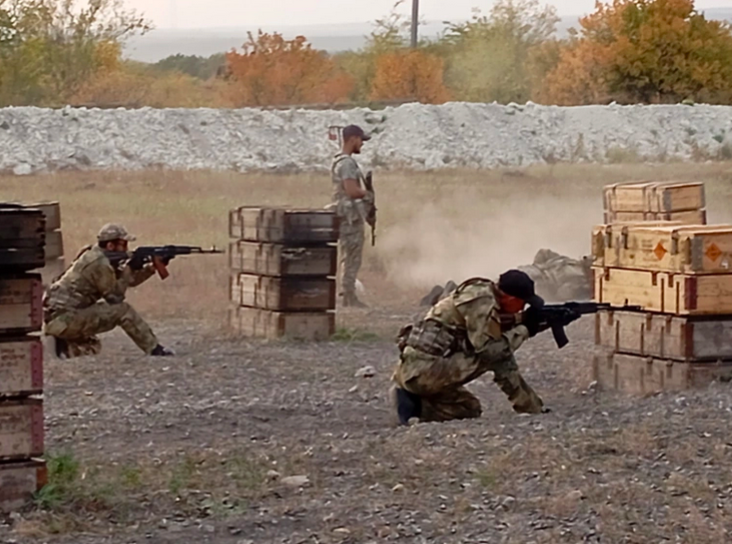
However, none of this seems to concern the soldiers, perhaps due to their overconfidence and fatalism. Still, one of our American teammates decides to shoulder the RPG, shouting “Allahu Akbar” in an American accent before firing. But the barrel is pointed too high. The round goes over the training field’s boundary wall, hitting trees in the distance. The Chechens laugh and soothe him.
Denis Pushilin, the 45-year-old leader of the Donetsk People’s Republic (DPR), is not an outsider, he comes from the Donbass resistance. He organized a special press meeting for our team in Donetsk. Pushilin began by addressing the one thing the people of the DPR wish for from us:
“Dear friends, I am truly glad to see you in our Republic. We are happy to host you, and we’re glad you’ve had the opportunity to witness the truth with your own eyes. We don’t ask for much, only that you be objective and share this reality with the people of your countries. That’s all…”
Istanbul peace talks
In the Q&A session, I asked about the peace talks held in Istanbul in March 2022. It had been revealed last winter that Ukraine had walked away from the negotiations under Western pressure, despite the parties being close to an agreement.
I asked Pushilin whether there was an agreement also for the Donetsk People’s Republic (DPR) in the Istanbul talks, and how he viewed Türkiye’s potential role as a mediator in future peace negotiations. He said the followings:
“We saw the documents where the negotiators were looking for a peaceful solution. They were close to a result, including here. There was also external interference, as said Boris Johnson, the British Prime Minister at the times, but I think this was just appearance. We need to look deeper for the root of the issue.
I don’t think it matters which country the mediators come from. What’s important is the political will, but I’m not talking about Ukraine, because Ukraine lost its independence in 2014, so now it can be called a puppet state. It’s dependent on everything: They need money for the war, for paying pensions, for repaying the interest on the loans. So, they can’t decide on anything themselves.”
“Turkish negotiating table”
“President Vladimir Putin thought we were ready for negotiations. But Western countries, the US and other leading countries must have the desire for a peaceful solution due to their positions. They need to develop a mechanism for a peaceful solution.
From this perspective, we are really grateful for the support from countries like Brazil or China. They are trying their best to support us. But once again, I think the cornerstone is the position of the Western countries. Only then we will have a chance to sit back down at the Turkish negotiating table.”
“We left Western values behind”
Kıvanç Özdal, the Foreign News Chief at Turkish Ulusal Kanal asked Pushilin: “We’ve seen your beautiful city. It’s close to the Donetsk front line, but here, life continues. Everyone is going to work; people are very kind to each other and to us. How did you manage this daily life rehabilitation? And what aspect of Donetsk’s people gave you the opportunity to rehabilitate daily life?”
Pushilin, looking pleased with the question, replied:
“We have a historical legacy. We don’t need any propaganda or anything like that. We just need to be ourselves. We need to show people that we are taking steps to improve their lives, rebuild their cities, etc. I’m really happy that my citizens are not indifferent. They take care of others in need.
But until 2014, we had, so to speak, Western values. We wanted money and what the West showed us, just like the Kyiv government does. But now, after 2014, we’ve understood what is truly valuable. So, living like human beings, communicating as humans, living a good and healthy life with all your relatives and friends, getting along well with them… Everything else doesn’t matter.”
And of course, we are aware of the many challenges and obstacles, but we will overcome them because we are not alone. The entire Russian Federation stands with us. Not just the government, but also ordinary people, are helping us. This is why we are optimistic; this is why we smile, and this is why we bring children into the world.
People are returning to their homes. This is the best indicator. And life continues. I am truly happy that my citizens have the opportunity to survive all these value changes.”
Note: I would like to extend my endless thanks to all the Russian friends who invited and guided us, and made this experience possible for us.







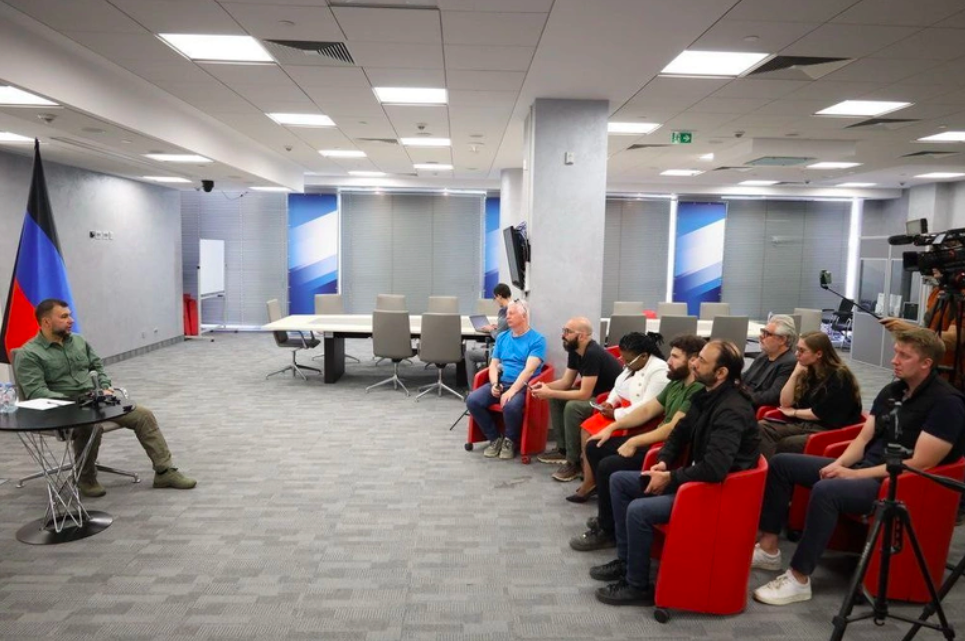
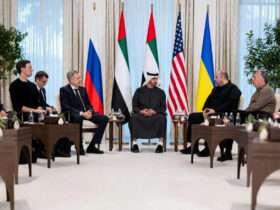
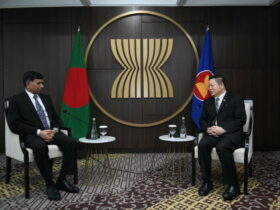
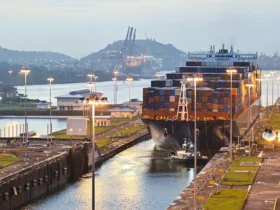
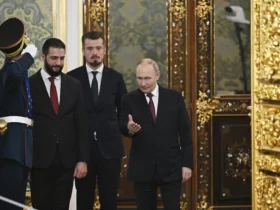
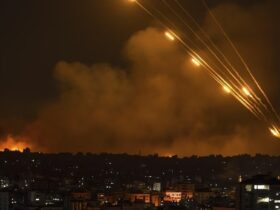
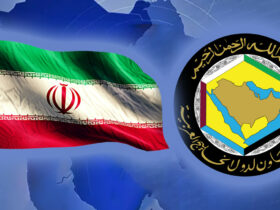

Leave a Reply